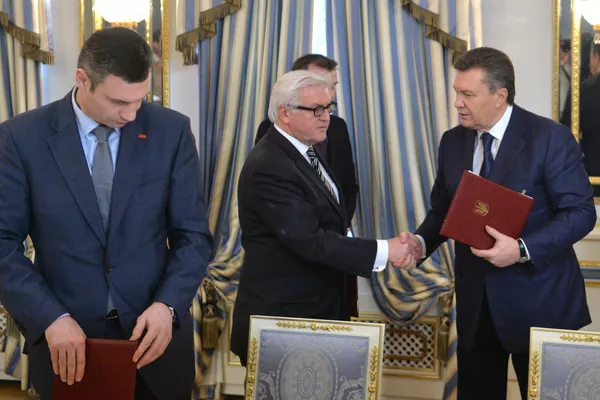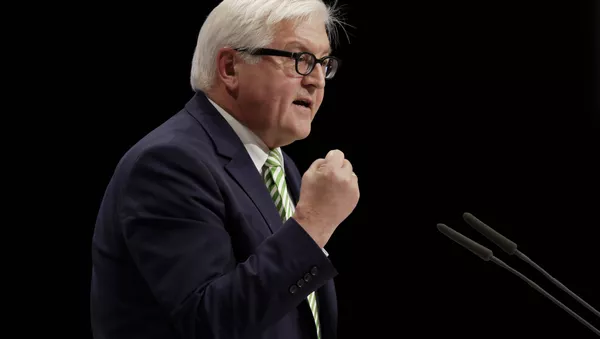Under German law, the president is selected by the country's Federal Assembly for a five year term. Wednesday's agreement is significant because none of Germany's major parliamentary parties has enough votes to push their favored candidate forward without the approval of others.
Russian Germany watchers have generally seen in Steinmeier a pragmatist and realist, and as someone who can be worked with. The Foreign Minister has voiced opposition to anti-Russian sanctions over the situation in Syria, is a proponent of the Minsk agreements on peace in eastern Ukraine, and has stepped out publically against the NATO military buildup in Eastern Europe. He has also said that the European Union must focus more on its many internal problems, or face the prospect of collapse.
Speaking to Sputnik Deutschland, Die Linke lawmaker Andrej Hunko said that in reality, Steinmeier is far from an ideal candidate for the presidency, even if he has "sent certain positive signals," for example, by promoting détente with Russia. "Speaking about NATO's Anaconda drills, he spoke of 'saber-rattling'," Hunko admitted. On the other hand, his role in the 2014 coup in Kiev, Ukraine, which started the East-West political crisis, should also be recalled, the politician stressed.
"Steinmeier immediately endorsed the coup in Ukraine in February 2014, although shortly before these events he went to the country and signed a different sort of agreement with President Viktor Yanukovych, who was then in power," Hunko noted.
The European politicians effectively went back on their word, and Ukraine has faced political and economic turmoil, as well as civil war in its Donbass region, ever since.

The Ukrainian debacle aside, Hunko also suggested that Steinmeier's image as a dove is somewhat overblown, something that has been demonstrated recently by Germany's vote against a UN resolution calling for the abolition of nuclear weapons. "This is the most important initiative in the history of the UN," the lawmaker explained. "Some European nations, including Austria and Ireland, supported it. Even NATO member the Netherlands abstained. So I don't see Steinmeier as the peace-loving foreign minister the media presents him as."
"All this throws a very unpleasant light on Steinmeier," Hunko said. "Therefore I will not vote for him." In conclusion, the politician suggested that Die Linke should field its own candidate for the post.





